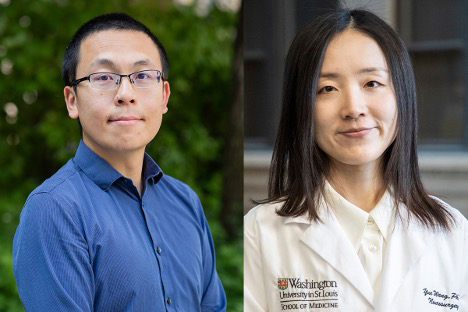
Researchers at WashU Medicine Mallinckrodt Institute of Radiology have identified specific neuronal cells that are essential to our understanding of other people. Runnan Cao, PhD, an instructor in radiology and former postdoctoral fellow in the lab of Shuo Wang, PhD, an associate professor of radiology, identified more than 700 such neurons in the human brain. These cells are involved in "social inference," our ability to read cues from other people's body language and expressions to draw conclusions about what they are feeling or thinking. Their findings were published in Science Advances.
Wang, Cao, and their collaborators Ueli Rutishauser, PhD, and Adam Mamelak, MD, at Cedars-Sinai Medical Center, and Ralph Adolphs, PhD, at California Institute of Technology, recorded brain activity in patients undergoing brain surgery while showing them images of people with different facial expressions, or of hands making different gestures. The goal was to identify brain regions that help translate the facial expressions or hand gestures of others into ideas about their emotions, thoughts and intentions.
The team found that the brain's medial temporal lobe and medial frontal cortex are involved in processing social inference, but in different ways: the frontal cortex processes the information in a general way across social inputs, while the temporal lobe registered distinct patterns associated with inferring the "how" and "why" of others' reactions. Identifying the specific neurons involved in social inference may shed light on the neural dysregulation involved in autism, schizophrenia and Parkinson's disease.






